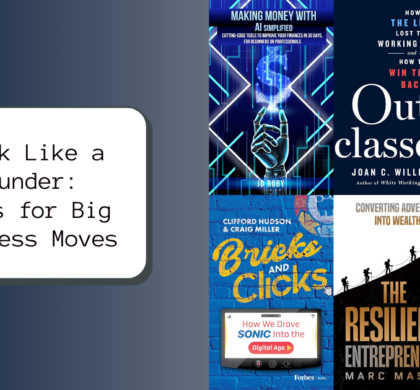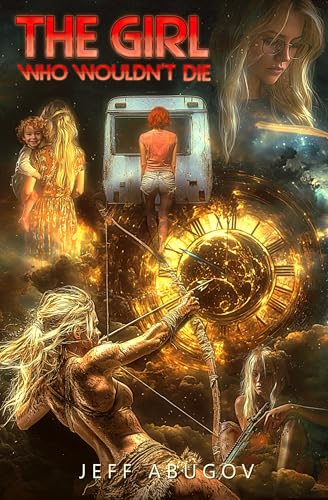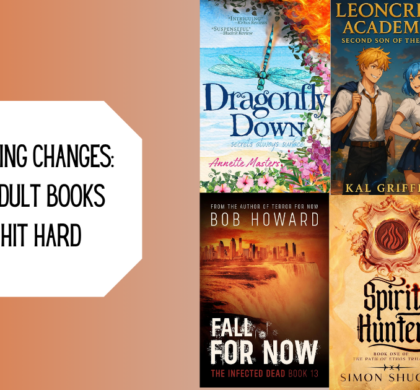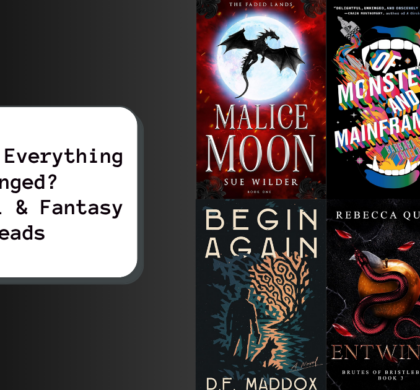Interview with Jeff Abugov, Author of The Girl Who Wouldn’t Die
11 Jun 2025
What’s the story behind the story? What inspired you to write The Girl Who Wouldn’t Die?
I always loved sci-fi, and the sci-fi sub-genre of immortality to boot. A few years ago, I was watching either Highlander or The Man from Earth, maybe even that great Twilight Zone episode on the topic – it’s taken me so long to write this book that I can’t specifically remember which – but it occurred to me that in all those stories, the hero was always born centuries or millennia ago while the plot took place in our times. The next thing that occurred to me was, what if it’s the opposite? What if he were from our time, and we followed him into the future? Seemed super cool to me because we could watch someone just like us, with our modern sensibilities and morals, living in incompatible futuristic worlds that I get to create. So, I let my imagination wander. It then occurred to me that my hero would acquire so much knowledge as he lived into infinity, whether that knowledge was science, medicine, philosophy, weaponry, or fighting skills, he would inevitably rise to the top of any future culture I could conjure up, and that felt boring.
Then it occurred to me that maybe my hero should be a she instead of a he, so I continued to explore that notion in my head. Throughout modern and ancient history, since the dawn of man, there have been eras of powerful women – ancient tribal leaders, queens, and prime ministers. There have also been eras when women were subjugated. We currently live in a time where brain is valued above brawn, so, yes, we live in a time when women are equal to men . . . but what if my heroine, despite all her skills and knowledge, came to live in a future era where it’s just about brawn, where all her skills and knowledge are irrelevant, immoral, illegal? Simultaneously, maybe she could live in a future era when men and women remain equal, and she would inevitably rise to the top. The possibilities were endless, so I decided to give it a go. I’m so glad I did. This might be the best thing I’ve ever written.
If you had to pick theme songs for the main characters of The Girl Who Wouldn’t Die, what would they be?
In this particular piece, the music would have to follow the era, not the character. One of Millie’s great strengths is to adapt to whatever time she’s in – never to fake it, but to actually feel it. So, despite her early days before she knew she was special, in the 1980s, she’d be a legitimate fan of Madonna and M.J. By the ‘90s, Celine Dion, Nirvana, Guns N’ Roses. In our modern day, she’d enjoy hip-hop and rap, Katy Perry, and Taylor Swift. In the tribalistic future, she’d cherish flutes made of wood and drums made of animal skin. But like almost all of us who never stop adoring the music of our teenage years, no matter how old we get, for Millie, it was the 1940s. Hence, the likes of the Andrews Sisters and Sinatra will always remain in her heart. Not exactly an answer to your question, but true nonetheless.
What’s your favorite genre to read? Is it the same as your favorite genre to write?
I love most genres to read – but I won’t tell you the few that I don’t, lol. Bear in mind, most of my career was as a sitcom writer, but I always loved reading science fiction, among other genres. An interesting note you might find interesting: while I’m writing, I can’t enjoy fiction. I’m far too into “writer-head.” Instead of enjoying the fantastic plot twists and turns that the characters must endure, I just go, “Hmmm, what an interesting choice the author made.” It kills the experience. So, while writing, I typically read non-fiction. As I currently work on Book 2 of The Girl Who Wouldn’t Die, I’m reading a biography of Eisenhower.
What books are on your TBR pile right now?
After I’m done absorbing the life and times of WWII Supreme Commander, President Dwight D. Eisenhower, I’ll be going back to sci-fi. Non-fiction can be fascinating and educational, but also a little dry sometimes. Next on my list is Project Hail Mary by Andy Weir, who wrote The Martian, which I loved. After that, I want to go back and re-read one of the all-time great sci-fi’s that I haven’t read since I was a teenager, Breakfast of Champions by Kurt Vonnegut, Jr. After that, no idea. It may be time for me to check out one of the great (not sci-fi) classics that I never got around to. Ulysses, Moby Dick, War and Peace, something like that. Or maybe another sci-fi, or a crime book. I’ll decide when some book or other jumps off a shelf and clocks me in the head.
What scene in your book was your favorite to write?
MASSIVE SPOILER ALERT! IF YOU HAVEN’T READ THE BOOK YET BUT INTEND TO, STOP NOW AND GO TO QUESTION 8! YOU DON’T WANT TO KNOW THIS! GO TO QUESTION 8!!!!!
The sex scenes, obviously, particularly young Molly’s first lesbian encounter, because I honestly didn’t know that it would happen. It wasn’t in any outline; I just wanted Molly to comment on Mad Men. But Janine’s gentle seductions, combined with strait-laced conservative Molly’s initial aversion turning to curiosity, just took over. As the two college girls played out the scene, their characters took control of my fingers on my laptop, and I was suddenly just an audience, a scribe. I was certain that Molly would figure out a way to let Janine down gently, and I was just waiting to find out how… but she didn’t. She went for it. I was as shocked as you were. But that last line of the section was one that Molly herself plunked into my head, and then it all made sense: “Well, look at me, smiled the ninety-four-year-old woman.” Warning to young writers: this kind of magic doesn’t happen often, so don’t expect it; but when it does, simply thank the deity of your choice and get back to work.
Do you have any quirky writing habits? (lucky mugs, cats on laps, etc.)
Overall, I’m not a superstitious guy. I tend to watch an hour or two of TV or YouTube before I start writing in the morning, but I’ve come to realize that that’s just letting my subconscious manifest into what I have to do next, so when I start writing, my conscious mind is ready. Or maybe I’m just a lazy procrastinator, like so many of my exes have said. I think they’re wrong, but y’know, who knows? I’ve just come to find it works for me. The only superstition I might have, even though I don’t think it’s a superstition at all, is this. Years ago, my son went to NASA on a high school trip.
He brought me back a coffee mug that quoted the Apollo 13 mission, “Failure is not an option.” I loved that quote, loved the movie, loved the Jim Lovell book, and it became my favorite mug… except not for writing. Writing is about exploration and wondering. If you don’t allow yourself to fail while you’re doing it, you’ll only come up with stuff that’s been done a million times before. Let yourself fail, because unlike most other professions, we writers can always go back and fix it after the fact. So, no, I won’t use my favorite coffee mug while writing.
Do you have a motto, quote, or philosophy you live by?
Take care of yourself. Do your best, always, and in everything. Push yourself into what’s scary. Get out of your comfort zone to make yourself the best you that you can be in everything you want to be the best at. If you’re fat, diet. If you’re scrawny, buff up. For young writers specifically, if writing on spec, write whatever the heck you want if it turns you on, yet walk away if you find that it doesn’t. Shut out all those critical voices that are inside your head, whether it’s your mom’s, your dad’s, or an ex, or your own stupid brain; and shut out all those critical voices that you expect to be coming. Relax. It’s just you and the blank page now, and that’s the best you’re ever going to get.
On the other hand, if it’s a work-for-hire, and you need the money to support yourself and/or your family, impress the heck out of your boss and do the best that you’ve been hired to do. If you’ve been hired to write crap, and you don’t have the resources to walk away, then endeavor to write the very best crap in the history of crappy writing. So, I repeat… take care of yourself.
If you could choose one thing for readers to remember after reading your book, what would it be?
That is such an interesting question, and the honest answer is that I don’t know. That they love it, I suppose. That they laughed when they were supposed to laugh? That they cried when they were supposed to cry? That they were scared when they were supposed to be scared? That they were intrigued and fascinated when they were supposed to be intrigued and fascinated? That they were turned on by the sex and horrified by the ugliness? All of that.
In a nutshell, they loved it. But here’s another quasi-answer, which doesn’t really answer your question, but you may find it interesting anyway. When I first turned from the collaborative mediums of TV and film to the more independent media of prose, it felt so very liberating. For the first time, I alone was the writer and the director and the casting agent and the production designer and the cinematographer the etc. But I eventually came to realize that I was wrong. I’m still only the writer. The reader is the director and the casting agent and the production designer and the cinematographer, etc., whatever my words conjure up in their head. And you know what? That’s the most liberating part of all. So, what do I want them to remember? I want them to tell me. I want them to tell me how they saw it; to tell me the movie they watched inside their head as they read me.
Jeff Abugov is the author of the new book The Girl Who Wouldn’t Die
Connect with Jeff Abugov
Author Site
Sign up for our email and we’ll send you the best new books in your favorite genres weekly.
Related
zaida
Recommended Posts

Think Like a Founder: Books for Big Business Moves
19 Jun 2025 - Books to Read if You Like..., Business & Finance, eBook


